The views expressed in our content reflect individual perspectives and do not represent the authoritative views of the Baha'i Faith.
O Son of Being! Seek a martyr’s death in My path, content with My pleasure and thankful for that which I ordain, that thou mayest repose with Me beneath the canopy of majesty behind the tabernacle of glory.
O Son of Man! Ponder and reflect. Is it thy wish to die upon thy bed, or to shed thy life-blood on the dust, a martyr in My path, and so become the manifestation of My command and the revealer of My light in the highest paradise? Judge thou aright, O servant!
O Son Of Man! By My beauty! To tinge thy hair with thy blood is greater in My sight than the creation of the universe and the light of both worlds. Strive then to attain this, O servant! – Baha’u’llah, The Hidden Words, pp. 14-15.
The word “martyr” has come on hard times lately. Typically we tend to think of martyrs as either psychologically-unbalanced people who complain incessantly about their problems and never do anything to change them; or fanatical suicide bombers who blow themselves up to kill others.
When I was younger, the whole idea of martyrdom seemed completely foreign to me, a truly remote and alien concept. I come from a Western mindset, so growing up I had no real context for martyrdom, either intellectually or culturally.
In fact, I grew up thinking that martyrs were fanatics. Give your life for some abstract cause? That’s absolutely insane, I thought. Then two things happened in my life—the war in Vietnam and the civil rights movement.
In 1963, Buddhist monk Thich Quang Duc publicly set himself on fire and died to protest the treatment of Buddhists by the Catholic regime in South Vietnam, and to register the Buddhist community’s opposition to the war in Vietnam. I remember seeing this act of altruistic suicide on television, and marveling over it for months afterward. How could anyone be so committed to a cause that they would be willing to so painfully give their life for it, I wondered. At first I thought the poor monk must have been insane, but then I learned he sacrificed his life as an act of conscience. His actions made me question everything I knew about life and commitment to others.
I realized, when I spoke to my father about this event, that perhaps the monk’s martyrdom wasn’t that unusual. After all, my father had also put his own life on the line during World War II. A United States Marine in the Pacific campaign, he was severely wounded on Tarawa, and barely lived. He had voluntarily risked his life for others, and spilled his own blood for his convictions.
Then, a year later, I became a member of the Congress for Racial Equality (CORE) and the National Association for the Advancement of Colored People (NAACP). I joined those groups because of three civil rights workers named Schwerner, Chaney and Goodman. You’ve probably read about them recently—young men, two white and one black, brutally murdered by racist whites outside of Philadelphia, Mississippi exactly fifty years ago in 1964. They were part of a movement called “Freedom Summer,” designed to register black people to vote. They paid for their commitment to racial equality with their lives, and became a symbol of dying for a just cause, just as Dr. Martin Luther King, Jr. did later.
The national outrage over the martyrdom of those innocent civil rights workers fueled the successful passage of the Civil Rights Act and the Voting Rights Act, two landmark legislative achievements that helped break America’s age-long institutionalized racism wide open.
Today we might think of martyrs as crazed fanatics who blow themselves up, but I would submit to you that those people aren’t martyrs at all, and that their homicidal acts against innocents dishonor a once-noble word. In fact, these suicide bombers tend to be young, impressionable and misguided by those who use them as pawns in larger struggles, associated with religion in name only. Used as unthinking weapons, these walking bombs take the lives of others, something a true martyr would never do.
The dictionary defines martyrdom as “one who chooses to suffer or die for one’s faith or principles.”
Baha’is look at true martyrdom—the willingness to sacrifice your own concerns, comfort and safety for a good, just and noble cause—as a high calling. Many Baha’is have undergone physical martyrdom, most recently at the hands of the government of Iran, which has imprisoned, tortured and executed literally hundreds of Baha’is solely for their beliefs in the oneness of humanity and the unity of all religions. More than a hundred Baha’is currently suffer for those beliefs in Iranian prisons.
But for most of us, martyrdom isn’t physical, it’s psychological. When we take a stand in the world for a good cause, we make the decision to oppose injustice and advocate for justice. That decision can entail suffering. That decision also means that we transcend our minor, more mundane self-centered interests, and replace them with larger ones—that we “die to the self” and seek a wider purpose. The symbolic term “martyr” applies, then, to anyone who selflessly acts on behalf of others.
I think that’s what Baha’u’llah means in the allegorical language of the three Hidden Words above—that God expects us to commit our lives to something larger than just our own personal concerns; and then expend our life’s energies in that path.
You May Also Like
Comments



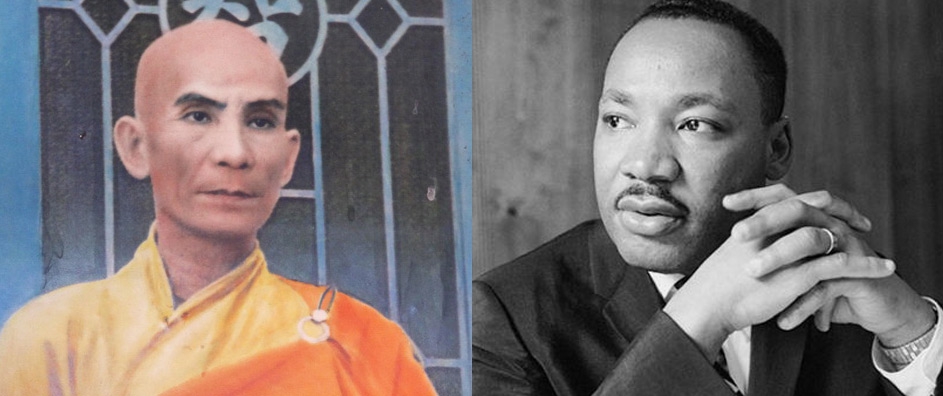
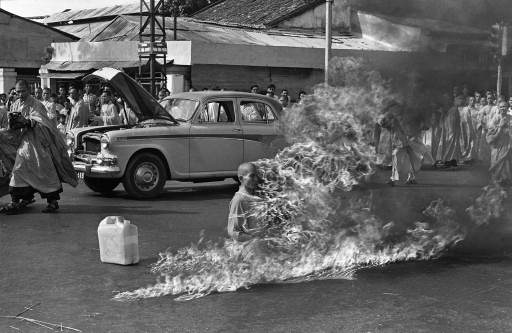



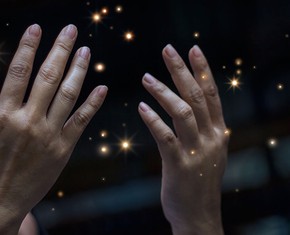
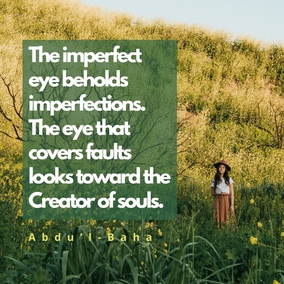
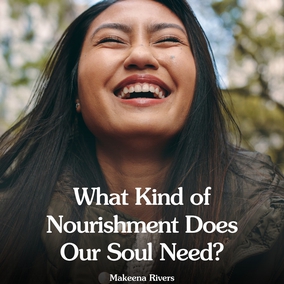







A true martyr never kills in name of God.